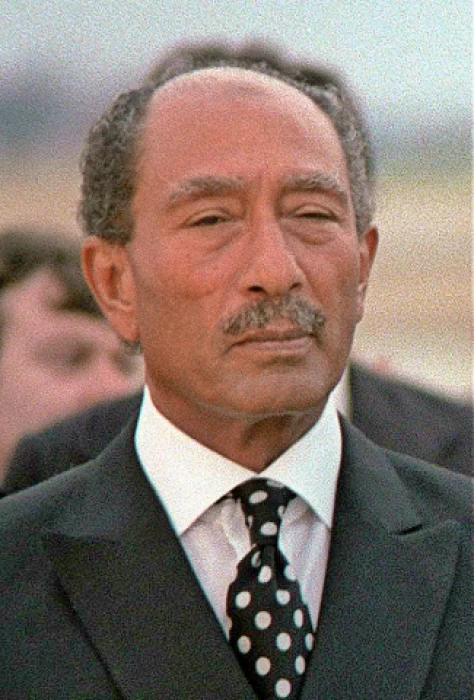
Anwar Sadat | Biography
Facts about Anwar el-Sadat
Anwar Sadat, born in 1918, was one of the leaders of the Free Officers Revolution. He was associated with the Camp David Accords, which was the first peace treaty signed by an Arab country with Israel, which sparked widespread discontent and led to an Arab boycott of Egypt.
He came from a peasant family, dreamed of becoming an actor, was imprisoned and fired from his job, lived as a fugitive and hunted, worked in hard labour and then in journalism, praised by some and harshly criticised by others. He died in an assassination in 1981
His family consists of a large, poor, rural family with 13 sons and daughters. In a house that retains its character and is called ‘Dar al-Salam’, located on the road leading to the village.
His mother was of Sudanese origin called ‘Set al-Birrin Khairallah’. His father married her when he worked as an employee in an army medical unit in Sudan, and he was known as Effendi because he was the first person in the village to obtain a primary school certificate.
He grew up in the care of his paternal grandmother, to whom the villagers used to go to resolve their disputes, and he said that she ‘taught me everything.’ He became attached to her and her conversations and recounted their impact on him in his books. He lived a village life, driving cattle to the canal, participating in irrigation work and picking cotton.
In 1940, he married the daughter of the mayor of his village, which he said was ‘just an arranged rural marriage’ that lasted 10 years and ended in divorce. At the age of 30, he married Jehan Raouf, the daughter of an English mother, who was 15 years his junior, and was later known as Jehan Sadat, and was the first to be called Egypt's First Lady in 1971.
Village life planted in Sadat the first seeds of discontent with social injustices and British colonialism, and he became an enthusiastic young man, unknowingly taking part in demonstrations, supporting sabotage and even guerrilla operations against agents and occupiers.
He was influenced by a number of political and popular figures in Egypt and the world, and this contributed to shaping the contours of his political ambition, which took shape in three stages. In the third stage of his political life, he took over the rule of Egypt on 17 October 1970, and his tenure lasted 11 years. ‘I don't remember seeing Sadat once sitting in his office ... he was running the country by phone,’ said journalist Ahmed Bahaa el-Din, who accompanied him for a long time.
According to historians, the sentiments of the Egyptian people swung between those who were against him and those who were for him in different periods of his rule. From 1971 to 1973, the majority believed that he would not fill the void left by the death of Gamal Abdel Nasser, and this period was characterised by a wait-and-see attitude towards his policies, according to observers.














